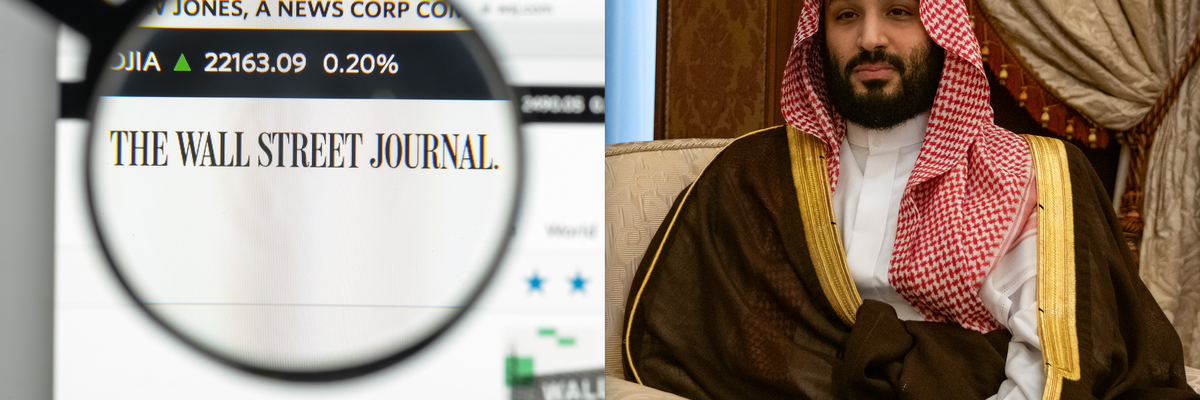The Wall Street Journal published an op-ed on Monday arguing that the United States needs to “recommit” to the Middle East. However, the paper did not disclose a potential conflict of interest at play in that the author is part of a Washington think tank that has received substantial funding from the United Arab Emirates and Saudi Arabia, and has personal financial interests in the region.
The op-ed, written by Firas Maksad, essentially pins blame on the Biden administration for Saudi and UAE leaders’ recent rejection of U.S. requests to condemn the Russian invasion of Ukraine and to help lower oil prices amid the embargo on Russian crude, and for their reported refusal to take President Biden’s phone calls.
Maksad then goes through a litany of well-worn scare tactics about how if the United States dares to divert any of its resources away from the region, then China and Russia will swoop in and take over. And if the Iran nuclear deal is restored, he says, “American deterrence across the region wanes,” despite the fact that after the JCPOA was agreed to in 2015 up until President Trump withdrew in 2018, Iran and local Iran-backed militias launched zero attacks on U.S. forces in the Middle East (and many more since).
The solution to all this purported mayhem, according Maksad, would be for the United States to create a special envoy to the Middle East “to restore trust and elevate the relationship,” while at the same time “meeting requests” from Saudi Arabia and the United Arab Emirates for anti-missile defense systems.
The Wall Street Journal identified Maksad as “an adjunct professor at George Washington University” and “a senior fellow at the Middle East Institute” but it did not disclose MEI’s strong financial ties to Saudi Arabia and the UAE. In the past five years alone, MEI has received millions from the UAE and at least $1 million from Saudi state-owned oil giant Aramco Services Company. The UAE is MEI’s single biggest funder.
But Maksad is not just a “senior fellow” at the Middle East Institute as the Journal says. He’s also MEI’s “Director of Strategic Outreach,” a position that, according to his MEI bio page, involves working on “strategic fundraising engagements with corporate and individual donors.” Indeed, a Wall Street Journal op-ed calling for more defense commitments from the United States to the UAE and Saudi Arabia presumably would help with pitching UAE and Saudi officials for additional donations to the Middle East Institute.
In addition to having served as CEO of the now-defunct pro-Saudi Washington think tank Arabia Foundation, Maksad is also the founder and managing director of Global Policy Associates — a consulting firm that does research, government affairs, and communications work — which lists MEI as one of its clients. But GPA’s client list also includes Teneo, a global advisory firm that has strong ties to the Gulf region in areas, according to Bloomberg, “such as risk advisory, communications and management consulting.”
Meanwhile, the Harbour Group, a key player in the UAE’s lobbying efforts in Washington, has contacted Maksad “multiple times” according to Foreign Agent Registration Act disclosures from May and November of 2021. Those contacts included topics such as the UAE’s military, its purchase of F-35s, and the normalization agreement between the UAE and Israel.
Unfortunately, this kind of hidden foreign influence has become commonplace in Washington. A foreign government funds a think tank which then goes on to advocate for that government’s interests, sometimes in direct opposition to American interests. While it’s laudable that MEI has made this funding information available to the public, it’s incumbent upon the media, especially major news outlets like the Journal, to inform their readers about any potential for conflict of interest.
















